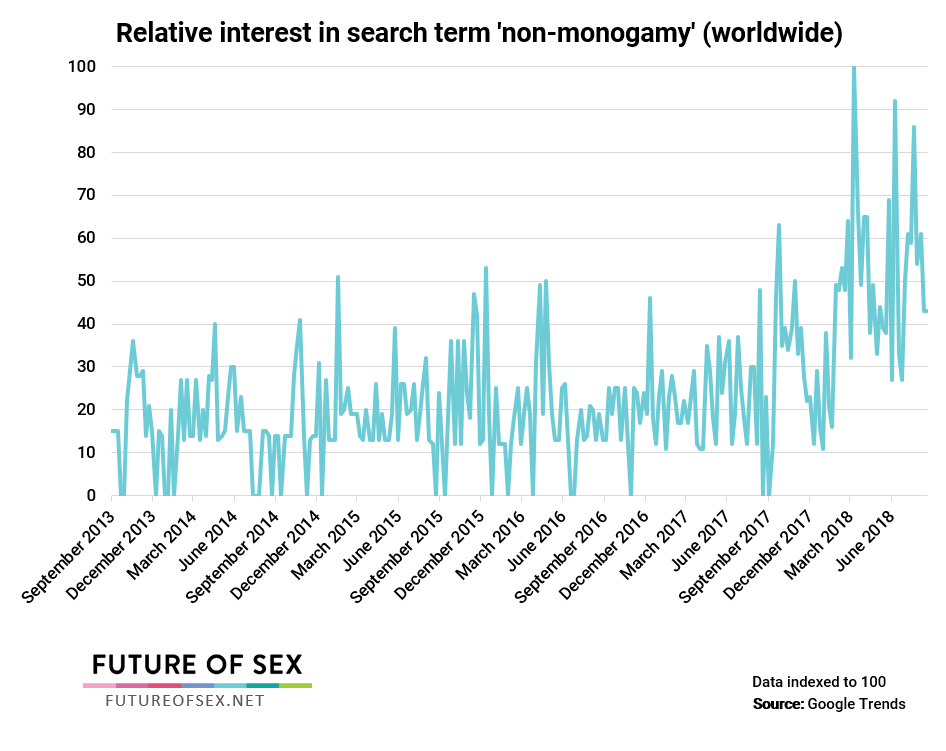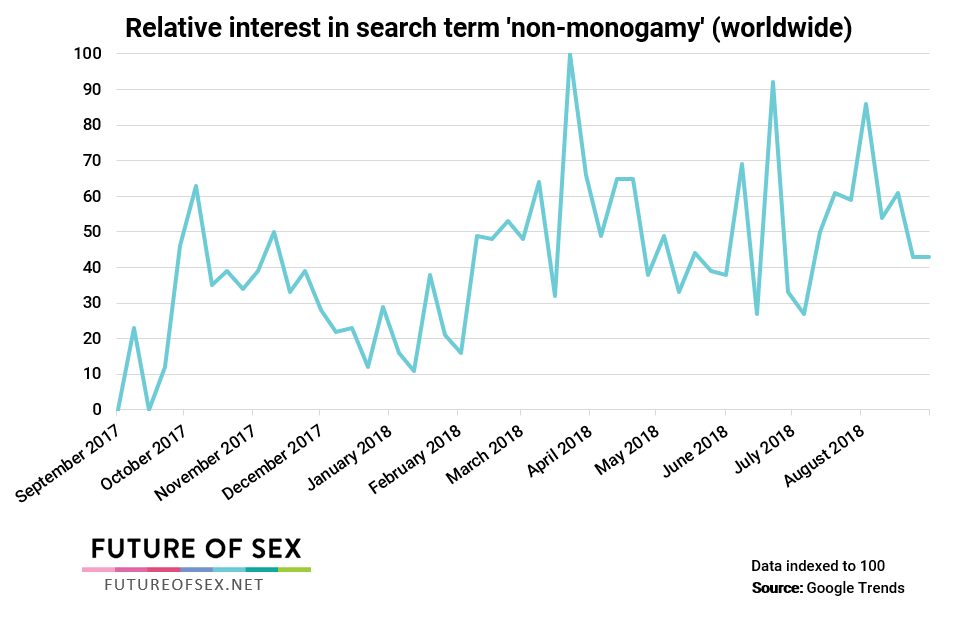Interest in Non-monogamy Grows Worldwide, but the Reason Why Is Not So Clear
Are multi-partner relationships on their way to becoming the norm?

What would it be like to break free from convention and form relationships outside of traditional coupledom?
If you are asking yourself this or similar questions about alternative love lifestyles, you are far from alone.
An increasing number of Americans are searching online for resources on polyamory and non-monogamy, according to a 2016 study published in the Journal of Sex Research and carried out by social scientist Amy C. Moors at the University of Michigan.
The findings are just one indicator of a growing worldwide curiosity about multi-partner and non-exclusive intimate relationships.
Tell me why
In the 2016 study, Moor examined Google Trends search data for the United States between January 2006 and December 2015.
While search interest in non-monogamy and polyamory is clearly gaining ground, Moors told Health24 the motivation is more challenging to pin down:
It’s hard to say whether people are Googling this info because they’re just curious about what they’re seeing on the small screen or they’re actually interested in trying it themselves, the topic is definitely on the public’s mind.
Widening the scope
To help fill in some gaps, we examined the Google Trends data for the term “non-monogamy” from 2013 to September 2018.
We also expanded our search beyond the United States to include worldwide data.

The chart shows there has been growing interest in the search term, with a significant jump in its popularity taking place since the end of 2017.

Note that Google Trends measures “Interest over time” for search terms, using a scale of 0 to 100. This means 100 represents the peak of search interest during a time period, with 50 representing half that level of interest.
Participant numbers are hard to pin down
Other studies have tried to determine the number of people involved in polyamorous relationships.
A 2016 study published in the Journal of Sex & Marital Therapy used data from the annual Singles In America Survey. Out of nearly 9,000 respondents, it found that more than a fifth, at one time or another, had a “relationship in which all partners [agreed] that each may have romantic and/or sexual relationships with other partners.”
Keep in mind, however, that an issue with surveys is they depend on voluntarily given information. As a result, they may affect the response rate and answers on taboo topics like polyamory.
Arguably, many people have been engaging in polyamory, open relationships, and swinging for years, but remain closeted due to fear of stigma and discrimination,” Moors told Health24.
But considering the rising interest and growing visibility of non-monogamy, this fear of “coming out” or openly exploring alternative relationships will likely diminish—and maybe even completely vanish—in the near future.
I anticipate that consensually non-monogamous relationships will become more mainstream, added Moors.
Image sources: Daniel Ramirez
Leave a reply
You must be logged in to post a comment.

















